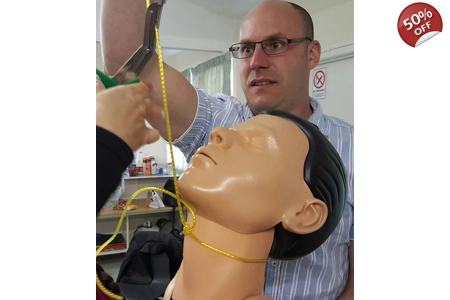

Introduction
Picture this: a child in residential care, away from their family, in a world that feels unfamiliar and sometimes daunting. The idea of routine may not seem particularly exciting, but it is like the steady beat or rhythm in a song, keeping everything coordinated. Without the foundation of a healthy consistent routine and the self-discipline that naturally comes with it, the continuing chaos makes it harder for the child to experience the 'cool stuff' of life
The Value of Routine
Stability and security
For children in residential care, stability and security are essential. Think of routine as the comforting beat in a song; it provides a consistent backdrop to their lives. Certainty over what happens next brings a sense of safety, taking them out of survival mode and this can get them wanting to do more.
Discipline and responsibility
A well-structured routine introduces kids to discipline and responsibility. Just as adding instruments and lyrics to a song enhances its creative aspects, a routine helps children develop important life skills. Through doing regular daily tasks repeatedly (no matter how mundane) they learn about responsibility, time management, and being accountable for their actions. Personal growth is the result.
Encouraging exploration and creativity
In a residential care setting, routine does not have to mean a dull, unchanging schedule. Like a song that evolves with the addition of instruments and lyrics, a well-structured routine allows for flexibility and the inclusion of diverse activities.
The Impact on Wellbeing
Emotional Stability
Consistent routines contribute to emotional stability. Just as a rhythmic beat in music can soothe, a structured routine has a calming effect on children. It helps with their emotional regulation, anxiety levels and provides autonomy and control, vital if you are a child that has experienced chaos, instability, and abuse.
Sense of Belonging
Shared routines create a sense of belonging and community among children in residential care. It's like the common elements in a musical composition that connect people. Just watch their self-esteem and self-worth rocket!
Opportunities for learning and growth
A well-structured routine is a playground for learning and growth. Just as a song becomes richer with the addition of instruments and lyrics, including various activities and educational opportunities within the routine broadens a child's horizons It helps them discover their interests and talents and helps foster their personal development.
Conclusion
In the world of children's residential care, routine might not seem like the most thrilling concept. But much like the beat of a song, it is the steady rhythm that keeps everything coordinated. An overly rigid and structured routine could potentially stifle a child, but a healthy structured routine constructed through collaboration with the child can create a stable and secure environment where they can explore, create, and enjoy the "cool stuff" that adds depth and meaning to their lives. Routine and structure and exercising of the discipline muscle is preferable to the alternative, chaos, disorder, and nihilism. Recognizing the harmony between routine and children's wellbeing is key to nurturing young lives, helping them become confident and resilient individuals in a sometimes-challenging world.





















 Anti-Ligature Train The Trainer CPD Pre-recorded..
Anti-Ligature Train The Trainer CPD Pre-recorded..
 Freelance Trainer Mentorship Program - Online
Freelance Trainer Mentorship Program - Online



